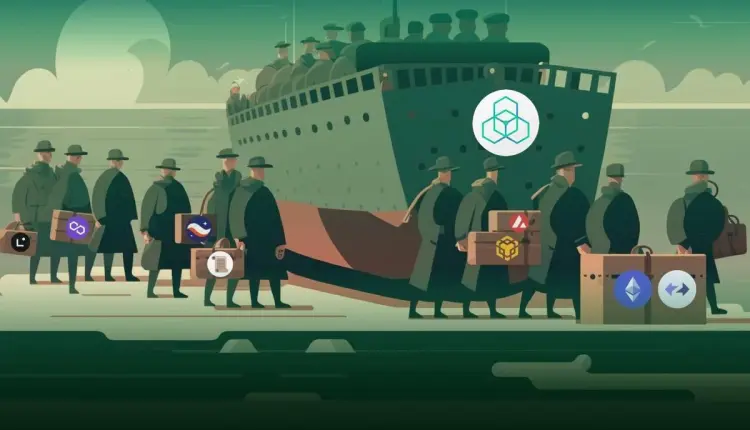
This post was originally published on cryptonewsfarm.com
Public Blockchains: Too Fragile for Tokenization Boom? Professor Raises Concerns
Public blockchains, the technology underpinning cryptocurrencies like Bitcoin, might not be ready for the large-scale tokenization of real-world assets (RWAs), according to a recent Congressional testimony.
Professor Hilary Allen Sounds the Alarm
Hilary Allen, a financial law professor at the American University Washington College of Law, voiced her concerns before the U.S. House Financial Services Committee (HFSC) on June 5th. She argued that public blockchains, while offering a permissionless and decentralized system, are simply not robust enough to handle the massive influx of tokenized assets expected in the coming years.
“Blockchains suffer from inescapable inefficiencies and operational fragilities that make them unsuitable as supporting infrastructure for real-world assets,” Professor Allen stated. She elaborated that her initial enthusiasm for blockchain’s revolutionary potential waned as she learned more about its limitations. “Permissionless public blockchains are a poor fit for the vast majority of problems people have tried to make it solve,” she concluded, even describing herself as a “pessimistic financial futurist” on the subject.
Scalability Concerns: Can Public Blockchains Handle the Load?
One of Professor Allen’s central arguments focused on scalability. Public blockchains, known for their slow transaction processing times, might struggle with the sheer volume of transactions associated with tokenizing trillions of dollars in real-world assets. While large transfers do occur on blockchains like Bitcoin and Ethereum (a recent example being a $6 billion Bitcoin transfer), such instances are exceptions rather than the norm.
Alternative Solutions and the Tokenization Landscape
Professor Allen refrained from endorsing specific alternative technologies, but did suggest that other ledgers and databases might be better suited for tokenization. This raises a key question: are public blockchains the only game in town when it comes to tokenization?
Professor Allen’s perspective stands in stark contrast to the views of industry leaders like BlackRock CEO Larry Fink, who envision a future where every stock and bond is tokenized on a blockchain. BlackRock itself took a step towards this vision by tokenizing its BlackRock USD Institutional Digital Liquidity Fund on Ethereum in March of this year.
Furthermore, a significant amount of tokenization is already happening. Over $1.53 billion in U.S. treasuries have been tokenized on blockchains, and investment banks like Citi estimate that $4 trillion to $5 trillion of RWAs could be tokenized by 2030.
However, even these optimistic projections acknowledge the challenges. Building the necessary infrastructure and establishing a standardized set of interoperability protocols remain hurdles that need to be overcome.
Professor Allen’s cautionary remarks highlight the need for a measured approach to tokenization. While blockchain technology undoubtedly holds promise, ensuring its scalability and security is vital for widespread adoption within the realm of real-world asset tokenization. Finding the right balance between innovation and practicality will be key to unlocking the full potential of this emerging technology.
Source Link
Author: Sb
Texas Adds Bitcoin to State Reserves
June 23, 2025NY Freezes $300K Linked to Crypto Scammers
June 19, 2025
Comments are closed.
Bitcoin News
-
UAE Firm Invests $100M in Trump-Backed Crypto Startup
June 27, 2025 -
Texas Adds Bitcoin to State Reserves
June 23, 2025 -
NY Freezes $300K Linked to Crypto Scammers
June 19, 2025
Most Viewed
-
Texas Adds Bitcoin to State Reserves
June 23, 2025 -
NY Freezes $300K Linked to Crypto Scammers
June 19, 2025
Recommend News
Bitcoin News
-
UAE Firm Invests $100M in Trump-Backed Crypto Startup
June 27, 2025 -
Texas Adds Bitcoin to State Reserves
June 23, 2025 -
NY Freezes $300K Linked to Crypto Scammers
June 19, 2025










